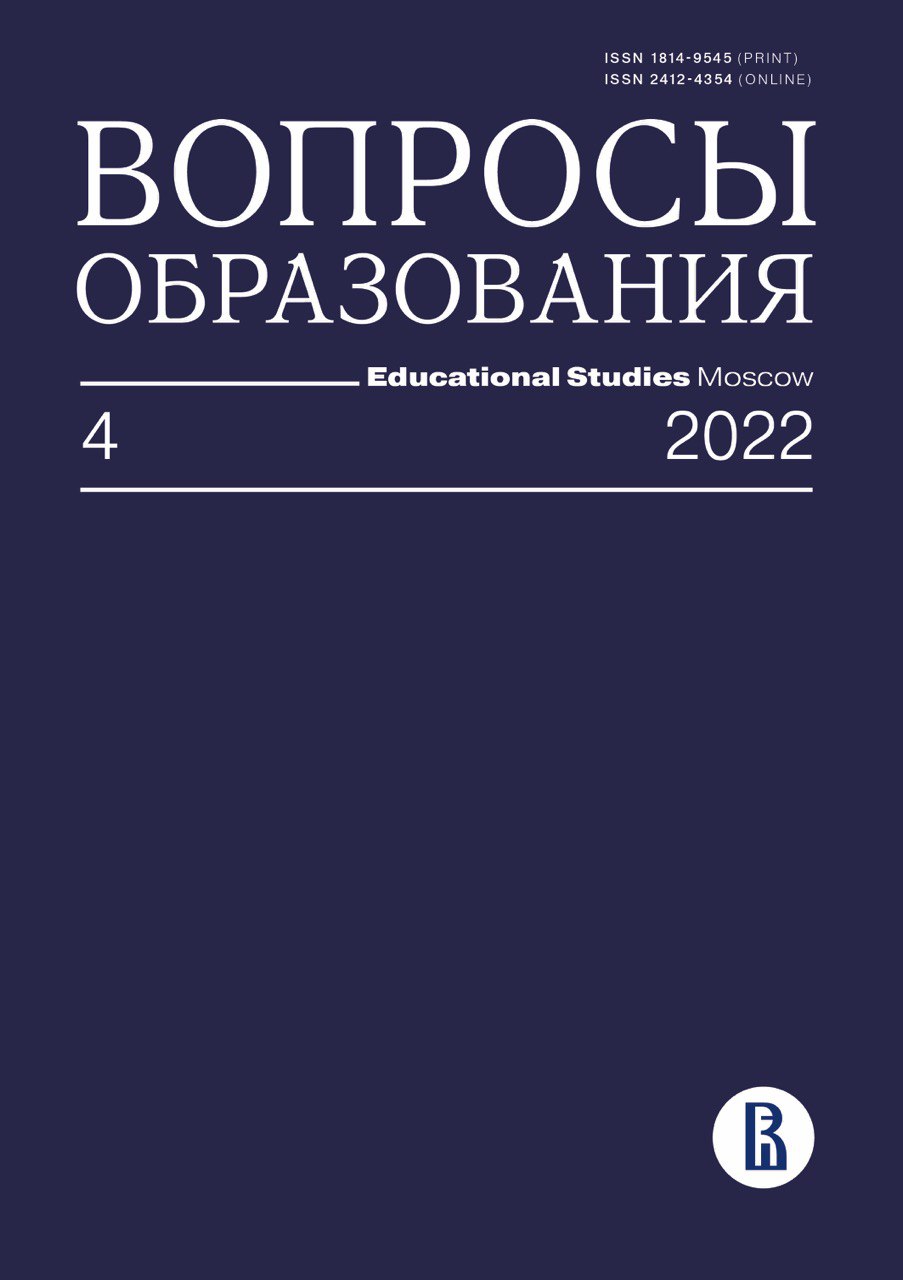Есть ли у педагогов альтернатива репетиторству для увеличения доходов?
Аннотация
В статье представлены результаты исследования рабочей нагрузки и доходов педагогов, использующих образовательные онлайн-платформы и маркетплейсы для поиска основной и дополнительной работы. Отталкиваясь от концепции теневого образования, авторы выясняют, в какой степени доходы педагогов зависят от нагрузки и сочетания видов педагогической деятельности в образовательных организациях и вне их, есть ли статистически значимые различия в стоимости часа репетиторской, платформенной и традиционной педагогической нагрузки, при каких условиях доходы педагогов сравняются с доходами представителей сопоставимых профессий и будут соответствовать индикаторам достойного труда.
Анализ данных социологического онлайн-опроса с помощью линейного регрессионного моделирования показал, что, работая только в школе, учитель даже при чрезмерной нагрузке не достигнет заработка, сравнимого с доходами в других видах педагогической деятельности. Статья впервые аргументированно раскрывает причины формирования — при сохранении пула педагогов, которые работают только в школе, — большой группы педагогов, занятых исключительно в секторе репетиторства, причем как самостоятельно, так и на онлайн-платформах.
Скачивания
Литература
Abankina I.V., Vavilova A.A., Derkachev P.V., Zinkovsky K.V., Kravchenko I.A., Surkova N.E. (2021) Oplata truda pedagogov: kak izmenit' situatsiyu k luchshemu? [Payment for Teachers: How to Change the Situation for the Better?]. Moscow: HSE.
Analytical Center under the Government of the Russian Federation (2020) Dobrovol'ny natsional'ny obzor khoda osushchestvleniya Povestki dnya v oblasti ustojchivogo razvitiya na period do 2030 g. [Voluntary National Review of the Implementation of the 2030 Agenda for Sustainable Development]. Available at: https://www.economy.gov.ru/material/file/dcbc39abeafb0418d9d48c06c958e454/obzor.pdf (accessed 4 November 2022).
Baker D. P. (2020) An Inevitable Phenomenon: Reflections on the Origins and Future of Worldwide Shadow Education. European Journal of Education, vol. 55, no 3, pp. 311–315. https://doi.org/10.1111/ejed.12410
Blair E.J. (ed.) (2018) By the Light of the Silvery Moon: Teacher Moonlighting and the Dark Side of Teachers' Work. Gorham, ME: Myers Education Press.
Bray M. (2009) Confronting the Shadow Education System. What Government Policies for What Private Tutoring? Paris: UNESCO International Institute for Educational Planning.
Bray M. (2013) Shadow Education: Comparative Perspectives on the Expansion and Implications of Private Supplementary Tutoring. Procedia: Social and Behavioral Sciences, vol. 77, pp. 412–420. https://doi.org/10.1016/j.sbspro.2013.03.096
Bray M., Lykins C. (2016) Tenevoe obrazovanie: chastnoe dopolnitel'noe obuchenie i ego vyzovy organam gosudarstvennogo upravleniya v sfere obrazovaniya stran aziatskogo regiona [Shadow Education: Private Supplementary Tutoring and Its Implications for Policy Makers in Asia]. Tomsk: Tomsk Polytechnic University.
Chambers J., Bobbitt S.A. (1996) The Patterns of Teacher Compensation. Statistical Analysis Report. Washington, DC: US Government Printing Office.
Cliggett L., Wyssmann B. (2009) Crimes against the Future: Zambian Teachers' Alternative Income Generation and the Undermining of Education. Africa Today, vol. 55, no 3, pp. 25–43. https://doi.org/10.1353/at.0.0052
Friedland R., Alford R.R. (1991) Bringing Society Back In: Symbols, Practices, and Institutional Contradictions. The New Institutionalism in Organizational Analysis (eds W.W. Powell, P.J. DiMaggio), Chicago: University of Chicago, pp. 232–263.
Gimpelson V., Chernina E. (2022) Do Wages Grow with Experience? Deciphering the Russian Puzzle. IZA Discussion Paper no 15068. Bonn: Institute of Labor Economics.
Hajar A., Karakus M. A (2022) Bibliometric Mapping of Shadow Education Research: Achievements, Limitations, and the Future. Asia Pacific Education Review, vol. 23, no 3, pp. 341–359. https://doi.org/10.1007/s12564-022-09759-4
Hansen T., Rand J. (2016) Self-Employed Tutor Pricing Model. Economics Department Working Paper Series no 210. https://doi.org/10.7275/9231485
Institute of the Public Opinion Foundation (2021) Sotsiologiya pandemii. Proekt coronaFOM [The Sociology of the Pandemic. The coronaFOM Project]. Available at: http://crimescience.ru/wp-content/uploads/2020/05/Социология-пандемии_Проект-коронаФОМ-2021.pdf (accessed 4 November 2022).
Kobakhidze M.N. (2018) Teachers as Tutors: Shadow Education Market Dynamics in Georgia. Cham: Springer. https://doi.org/10.1007/978-3-319-95915-3
Petsiotis K. (2022) Thirty-One and Counting in the Shadow: A Teacher’s Autoethnography. Studies in Technology Enhanced Learning. https://doi.org/10.21428/8c225f6e.94efbb46
Schugal N.B. (compil.) (2021) Monitoring ekonomiki obrazovaniya: 2020: v 2 tomakh. T. 1. Obshchee i srednee professional'noe obrazovanie [Monitoring of Educational Markets and Organization: 2020: in 2 vols. Vol. I. General and Secondary Vocational Education]. Moscow: HSE.
Silova I., Bray M. (2006) The Hidden Marketplace: Private Tutoring in Former Socialist Countries. Education in a Hidden Marketplace: Monitoring of Private Tutoring. Overview and Country Reports (eds I. Silova, V. Budiene, M. Bray, A. Zabulionis), New York, NY: Open Society Institute, pp. 71–98.
Stevenson D.L., Baker D.P. (1992) Shadow Education and Allocation in Formal Schooling: Transition to University in Japan. American Journal of Sociology, vol. 97, no 6, pp. 1639–1657. https://doi.org/10.1086/229942
Strebkov D.O., Shevchuk A.V. (2022) Neformal'naya ekonomika frilansa v Rossii: sotsiologicheskaya perspektiva [The Informal Economy of Freelancing in Russia: Sociological Perspective]. Trudovoe parvo: natsional'noe i mezhdunarodnoe izmerenie. T. 2: Transformatsiya problemy otdel'nykh institutov trudovogo prava. Netipichnaya zanyatost' [Labor Law: National and International Dimension. Vol. 2: Transformation of the Problem of Specific Institutions of Labor Law. Atypical Employment] (eds S.Yu. Golovina, N.L. Lyutov), Moscow: Norma, pp. 271–307. https://doi.org/10.12737/1859092
Ventura A., Jang S. (2010) Private Tutoring through the Internet: Globalization and Offshoring. Asia Pacific Education Review, vol. 11, no 1, pp. 59–68. https://doi.org/10.1007/s12564-009-9065-5
Zair-Bek S.I., Anchikov K.M. (2022) Shkol'nye uchitelya v izmenyayushchikhsya usloviyakh: adaptivnost' i gotovnost' k innovatsiyam [School Teachers in Changing Conditions: Adaptability and Willingness to Innovate]. Moscow: HSE. https://doi.org/10.17323/978-5-7598-2676-7
Copyright (c) Авторы сохраняют за собой авторское право и соглашаются с условиями публикации в журнале (https://vo.hse.ru/copyright)

Это произведение доступно по лицензии Creative Commons «Attribution-NonCommercial» («Атрибуция — Некоммерческое использование») 4.0 Всемирная.








